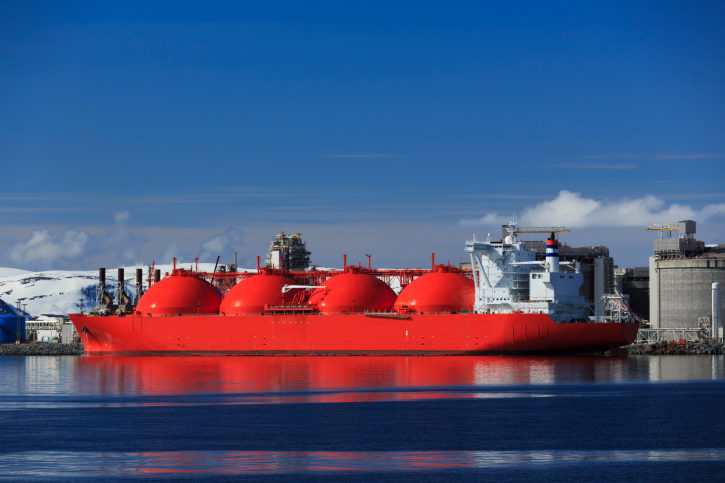By Chuck Meyer
Disruptors are forces for positive change. They defy conventional wisdom and usher in unorthodox, innovative solutions and American companies have led the way.
We often associate “disruption” with the tech industry, and rightfully so. Look at Blackberry. In the early 2000s, the Canadian company offered a product that was the standard device for government, business, and financial institutions. But everything changed in January 2007 when Steve Jobs stood on a stage in San Francisco holding a small touch-screen device that could download music, videos, text and make phone calls, and companies adopted bring your own device to work policies to cut back on work phone expense.
Blackberry tried to compete, even releasing a new device with a touchscreen, but it wasn’t long before companies across the world switched to the iPhone despite years of brand loyalty. Blackberry was soon knocked off its throne by the new disruptor on the block, Apple. There are countless other examples of this phenomenon, from Netflix and other streaming services replacing Blockbuster to internet retailer Amazon.com overtaking Borders, the now-defunct multinational book and music retailer. Another example is Uber taking over a market once dominated by taxi cabs. The list goes on.
This model of disruptive innovation is not unique to the tech industry, although in recent years, it is the tech industry that has gotten the press. In the energy industry, liquefied natural gas (LNG) has proven to be an important part of the American energy renaissance, while supplying our allies abroad with clean, affordable energy. For decades, the U.S. imported LNG from other countries to complement domestic energy sources. Thanks to quiet innovation, the U.S. became an LNG exporter in 2016 slowly replacing other energy exports, like coal in international markets. Just seven years later, the U.S. is now the top LNG exporter in the world.
Now the newest US exporter, Venture Global LNG, has disrupted the LNG marketplace by demonstrating it can provide LNG faster and cheaper by using new a modular approach.
LNG export facilities have been historically difficult to build and plagued by delays and cost overruns. The traditional approach to building these facilities often requires over 10,000 workers and takes years to build, but Venture Global took a different approach with the primary goal of accelerating time to market and reducing cost, in order to lower the price of liquefaction by 50%. Rather than using a custom, stick-built, large scale model, Venture Global builds smaller standardized modules that are built in factories and delivered to site for quick deployment to cool natural gas to liquid form for export.
This model is expected to become the new industry standard, as we have already seen other natural gas companies shift to a modular design, replacing traditional large-scale configurations. In a matter of years, this company has gone from a virtually unknown start-up to one of the “Big Three” in the U.S. LNG industry.
Adopting a “move fast and break things” mentality, which has been a cornerstone of the tech world for so long, has changed the LNG market landscape by reducing the cost to which energy is delivered. But it has also resulted in growing pains for the industry.
Venture Global’s first export terminal, Calcasieu Pass, is still in its commissioning phase meaning the facility isn’t finalized yet but is able to export cargoes to the spot market as part of a “soft launch.” This beta period, if you will, is not uncommon given that LNG export facilities are complex and experience delays throughout the construction process; and it allows an operator to work out the kinks before locking themselves into more rigid production schedules. Venture Global has said its unique configuration requires an extended commissioning period where the site produces LNG while the rest of the plant is completed. This has the European supermajors crying foul.
Companies that signed long-term purchase contracts, including two of the world’s largest supermajors, have claimed that Venture Global should have already begun such sales to them. However, the facility cannot begin these agreed upon sales until it declares project completion, now slated for 2024. Although many of these same large energy companies have faced similar delays and know all too well the struggles to get a project off the ground, they want access to LNG now at a locked-in rate that conveniently happens to be far below current market prices.
Yet, while the dispute on the surface seems to revolve around who is entitled to the profits from current high energy costs, there is something bigger to this story when you dig deeper. Due to innovation, this American company is rapidly growing and through innovation, forcing a notoriously inflexible industry run by the same group of incumbents to adapt.
Disruptive innovation is not supposed to be comfortable, as it is meant to shake up industry and cast aside antiquated ways of doing business. The natural gas industry has seen a seismic shift over the past decade with no signs of slowing down, and innovative companies are powering the change. A lower cost of energy production costs means accessibility to cleaner burning natural gas for millions of people around the world, allowing the fuel to be deployed as a transition on the pathway to renewable energy. That is something to be celebrated.
Chuck Meyer is a Texas-based business law attorney focused on intellectual property, contract negotiation, data protection and privacy, and commercial law issues. He was the Chief Legal Officer of Research In Motion Limited (now BlackBerry); He is a registered patent attorney (USPTO) and a Fellow of the Charted Institute of Arbitrators.
Originally published by RealClearEnergy. Republished with permission.
To read more about the innovative natural gas export industry, click here.
To read more about hurdles for LNG, click here.
